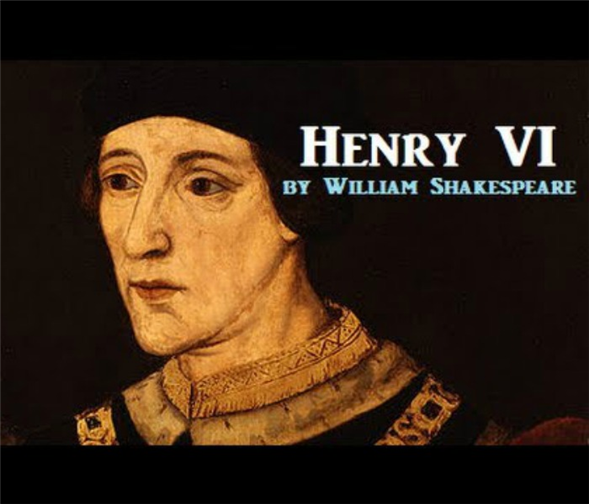Translate Page

A Bard lover makes the case for why the rarely mounted Henry VI is scarily timely
---
Of Shakespeare's many works, the Henry VI trilogy is one of the few that's never been produced on Broadway. (Pericles, Titus Andronicus, Two Noble Kinsmen, and, if you count it, Double Falsehood also share that dubious distinction, though of course there have been Off-Broadway mountings of them all.) To my mind, now is the perfect time to look at one of the Henry VI histories posthaste -- and not just because Oxford University Press recently attributed Christopher Marlowe as coauthor. The story line of Henry VI Part 2, specifically, pops off the page with a ripped-from-the-headlines immediacy. Consider this parallel universe:
The reign of the current king (Henry VI) is being challenged by a "birther movement" that questions his right to rule. And yet he has cultivated the devotion of the people, in part because an eloquent adviser (Gloucester), with no political aspirations, espouses a high-road approach to affairs of state. Still, the King's self-appointed successors are squabbling. There's a family dynasty (The Yorks) hoping to reclaim the throne as well as a political outsider (Jack Cade) who incites the rabble to back his own violent quest for the crown. I don't need to tell you who to plug into each role above, do I?
And that's not all -- not by a long shot. There's a recurring theme of women taking power; an extramarital affair with an unhappy end; a disparity of justice between the rich and the poor (for the same crimes); private messages that end up in the wrong hands; strategic alliances with a church that's more concerned with power than morality; even an apprentice named "Thump." Talk about coincidences!
In the manner of an Elizabethan aside, I herewith admit that I'm the bookish type, a true square who delves into Shakespeare frequently without fail. Last year, Henry V reminded me to embrace my inner underdog. (Take risks!) The year before that, Richard II encouraged me to cultivate my inner life. (Live deep!) Is it any surprise that the first professional theatre review I ever penned was of an off-off-Broadway production of King John? (Keep writing!)
So it makes complete sense that, in the midst of this ill-spirited campaign of bad hombres and nasty women, I'd be paging through one of Shakespeare's less-taught histories, oh, just because. Yet even so, I confess I was caught completely unawares by how of-the-moment this history turned out to be. Immersed in this world of constant insults, backstabbing and witchy consultations, I realized that yes, we've been through this before, many times it seems. And no, it doesn't appear that we've learned much, if anything.
Mercifully, Shakespeare and Marlowe don't just serve up a hellishly wicked power struggle. They also give us glimpses of characters acting honorably -- those few who don't equate might with right as a rule. In these rare instances, the wrongfully accused (Gloucester, Thump) are less concerned with getting even than they are with retaining a clear conscience. As the King himself puts it, "What stronger breastplate than a heart untainted?" Unfortunately, that's the voice of the minority.
There's also a poignant question asked by one old-guard member named Lord Saye, whose stirring plea for his life leaves his onstage listeners (though not the audience) unmoved:
Ah, countrymen! If when you make your prayers,
God should be so obdurate as yourselves,
How would it fare with your departed souls?
How deaf to all caring some ears have grown. The condemnations and insults are unending nowadays, as are the denials and evasions. Cade himself states in reaction to Saye's cry for mercy: "I feel remorse in myself with his words but I'll bridle it" for fear that compassion be viewed as a weakness. Compare that sentiment to this quote from Gloucester, a man not afraid to feel for the enemy:
Pity was all the fault that was in me;
For I should melt at an offender's tears,
And lowly words were ransom for their fault.
Surely, as one slogan goes, "Love Trumps Hate." Not that anyone's heeding that catchphrase, either. If "true nobility is exempt from fear," as one character puts it, how far we've come from the ideal in this election cycle. And where are we going? In Henry VI Part 2, the man who will become that nastiest of kings, Richard III ("as crooked in thy manners as thy shape"), comes onto the scene and assumes an even larger role in the next installment. Eventually, he goes on to get his own play and we all know how that turns out. Not good.
Director Ivo van Hove's about to open Kings of War at BAM condenses Henry V, the Henry VI trilogy, and Richard III into four and a half hours. While I'm looking forward to watching his streamlined version, I also ache to see Henry VI Part 2 onstage in full. I can't remember the last time that Shakespeare spoke to me so directly about current events. What are the odds that someone will mount it soon? Has anyone looked at the polls? And what polls can you trust, anyway?
---
Drew Pisarra's theatre experiences range from ventriloquist (Singularly Grotesque) to librettist (The World Is Round), choreographer (Ladies' Voices) to master of ceremonies (White Wines). Follow him on Twitter at @mistermysterio. Follow TDF at @TDFNYC.